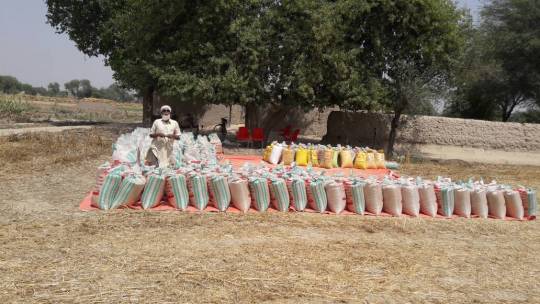#biofortification


Zinc deficiency affects around 17% of the world’s population, mostly in developing countries. In Pakistan, the most recent national nutrition survey indicated that over 40% of women are zinc deficient. Stunted growth and development in children, increased susceptibility to infections, and complications during pregnancy and childbirth are just some of the consequences of zinc deficiency. Potentially leading to severe illness and death, this seemingly invisible deficiency has a negative economic impact on the family, the community, and the region more broadly.
So in May 2017 a group of researchers from the University of Central Lancashire started investigating whether a newly developed strain of biofortified wheat could increase dietary zinc intake in Pakistan by integrating the wheat into normal eating habits, and is being used is used to make chapattis – a staple food in the brick kiln communities of Peshawar.
Biofortified crops are developed using conventional plant breeding techniques, like cross-breeding standard varieties with their wild relatives over several generations. This means that biofortified crops are often more resilient to pests, diseases, higher temperatures and drought, as well as having higher micronutrient concentrations, such as zinc.
The trials were successfully completed in February this year, and the team are heading out to Pakistan this month to meet with research partners. The next steps are laboratory analysis, data entry and statistical analysis, and the team hope they will show improved zinc status associated with consuming bio-fortified zinc flour.
